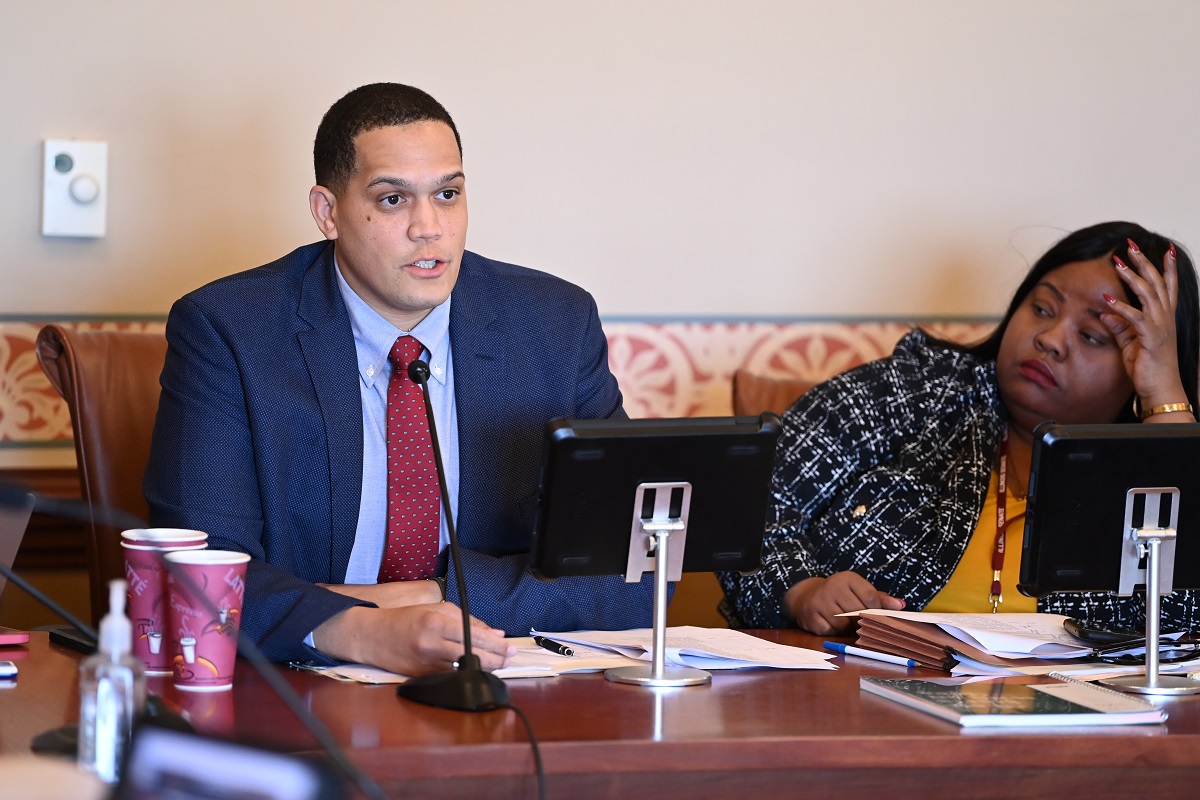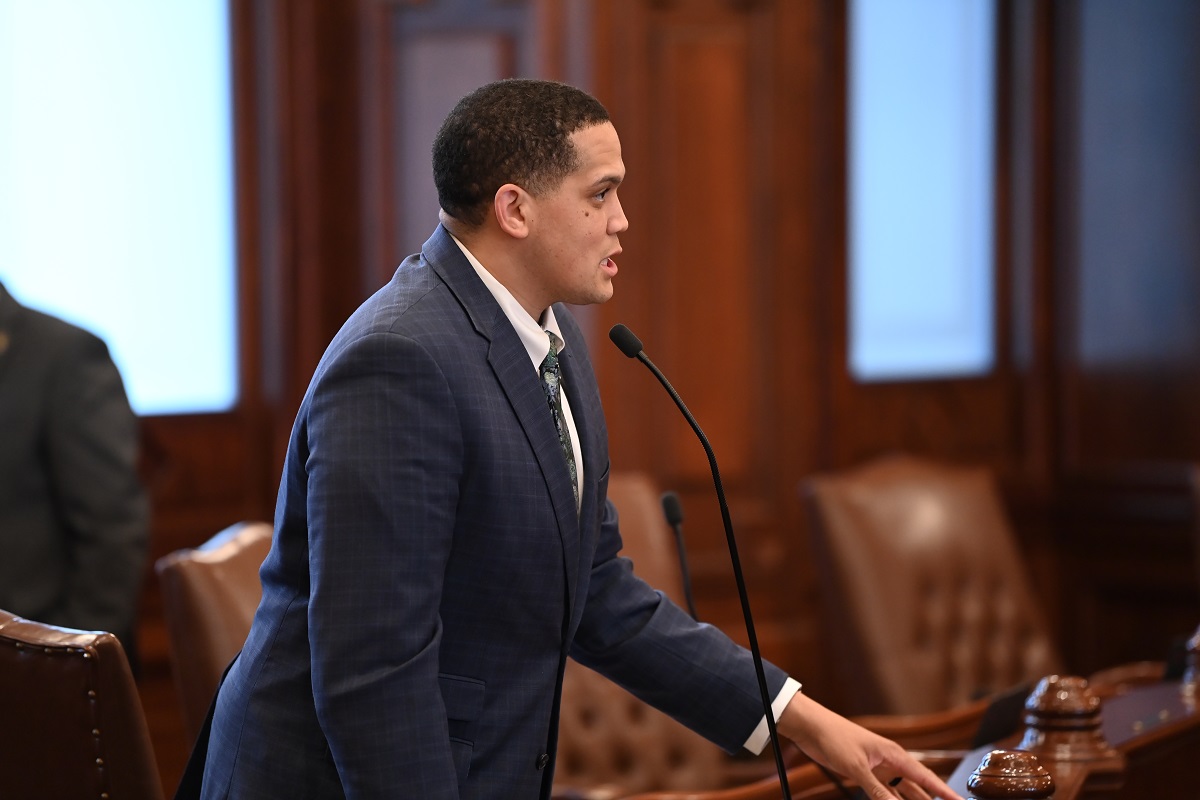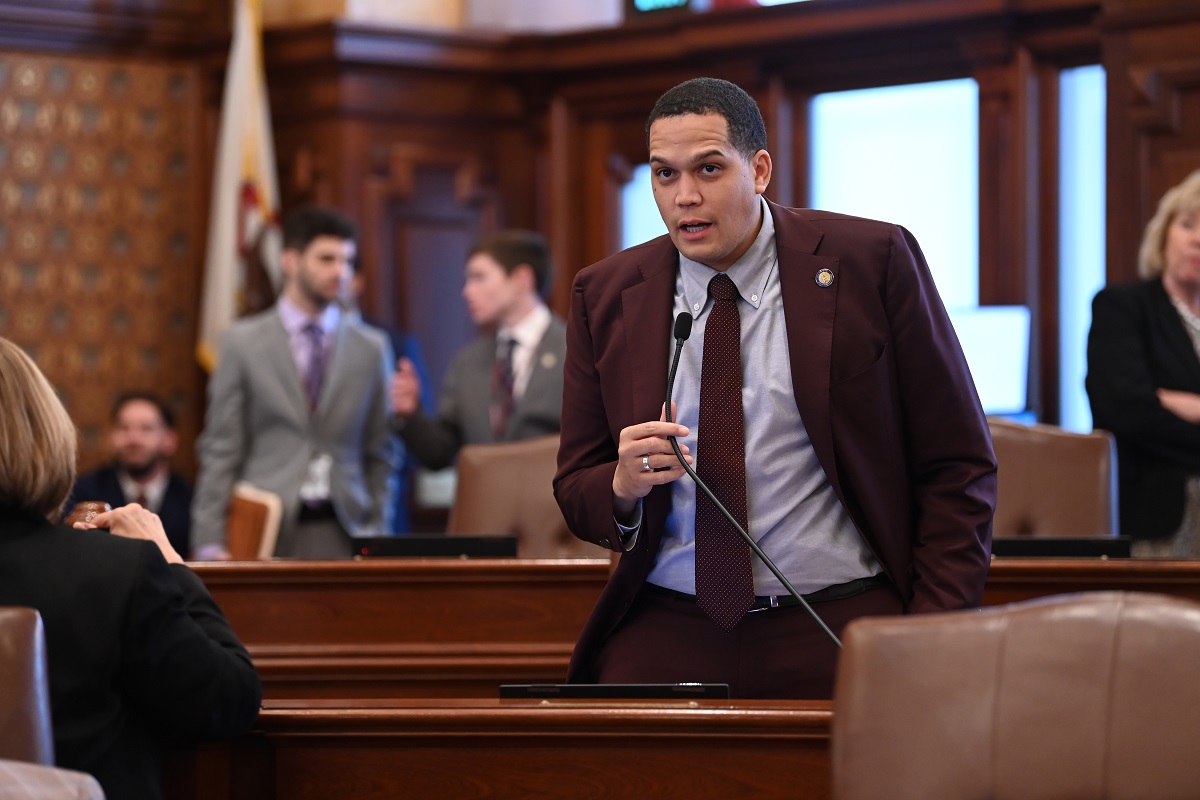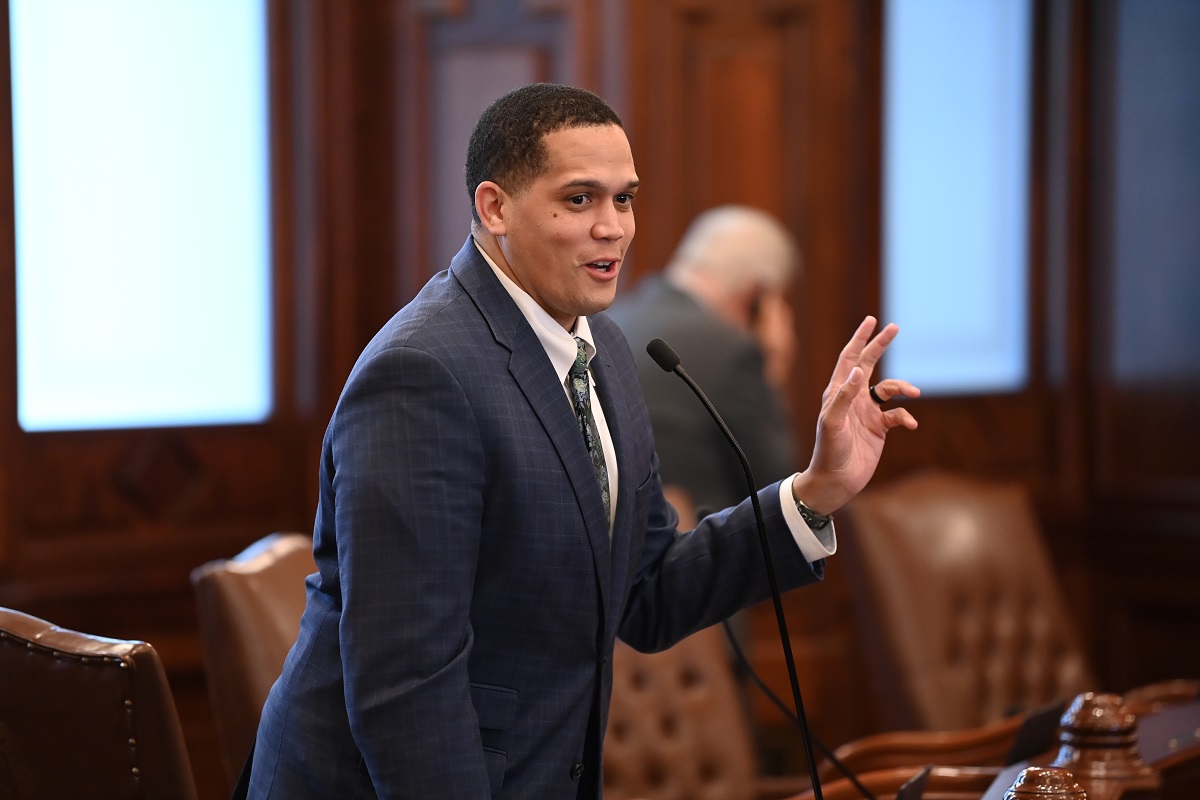- Details
- Category: Press Releases
 SPRINGFIELD — Illinois could reshape the way agencies respond to mental health crises and offer critical services to those in need, thanks to a measure from State Senator Robert Peters that would ensure better coordination, training and accountability in the delivery of behavioral health services.
SPRINGFIELD — Illinois could reshape the way agencies respond to mental health crises and offer critical services to those in need, thanks to a measure from State Senator Robert Peters that would ensure better coordination, training and accountability in the delivery of behavioral health services.
“Mental health care is public safety,” said Peters (D-Chicago). “We have a responsibility to respond to crises with care, not punishment. That means giving communities the tools, training and coordination they need to support people when it matters most.”
Under Peters’ measure, the implementation deadline of the Community Emergency Services and Support Act would be extended until July 1, 2027, ensuring a more thorough and thoughtful rollout of critical services. The initiative comes at a time when mental health services are under increasing strain, with more people experiencing mental health crises and a heightened demand for accessible care.
In addition to providing a clear roadmap for CESSA implementation, the bill would permit new training for mobile mental health relief teams and an updated data collection structure, transforming how mental health emergencies are handled and offering a strong framework for individuals in crisis and the organizations that serve them.
“This bill isn’t just about extending a deadline – it’s about handling mental health crises effectively and appropriately,” said Peters. “Building a stronger foundation for how we respond to these emergencies ensures every person in crisis is met with dignity, professionalism and the help they need to recover.”
Senate Bill 2500 passed the Senate Wednesday and heads to the House for further consideration.
- Details
- Category: Press Releases
 SPRINGFIELD — Community violence prevention programs save lives, but to be effective, they need long-term support and flexibility. Thanks to a new measure from State Senator Robert Peters, efforts to curb firearm violence in the state would hold strong by giving organizations more time to access critical resources and improving the way the state coordinates its response.
SPRINGFIELD — Community violence prevention programs save lives, but to be effective, they need long-term support and flexibility. Thanks to a new measure from State Senator Robert Peters, efforts to curb firearm violence in the state would hold strong by giving organizations more time to access critical resources and improving the way the state coordinates its response.
“Ending gun violence requires more than short-term fixes – it demands sustained investment and smart policy,” said Peters (D-Chicago). “This measure strengthens the backbone of our ongoing violence prevention efforts, ensuring community organizations can focus on saving lives and creating safer neighborhoods.”
Peters’ measure would make several updates to Illinois’ approach to violence prevention. First, it would allow the Office of Firearm Violence Prevention to submit its annual report on an ongoing basis, rather than being locked into a rigid deadline, guaranteeing lawmakers and communities receive the most relevant data. It would also extend the filing deadline for non-Medicaid-certified Reimagine Public Safety Act grantees that provide behavioral health services, giving them additional time to obtain certification. Additionally, it would delay the awarding of grants by one year, giving applicants time to establish services that are vital for long-term success.
For frontline organizations working to prevent violence, the measure would allow more stability and a stronger foundation to continue their life-saving work. By removing unnecessary hurdles and making sure support reaches the communities that need it most, Peters’ initiative would help Illinois’ most vulnerable neighborhoods have the resources to reduce violence and build safer futures.
“This legislation boils down to making sure local groups have the time, tools and trust they need to stop violence before it starts,” said Peters. “By making these updates, we’re reinforcing our commitment to smart, community-driven solutions to gun violence.”
Senate Bill 2280 passed the Senate Wednesday and heads to the House for further consideration.
- Details
- Category: Press Releases
 SPRINGFIELD — A new initiative that would revolutionize how Illinois communities heat and cool their homes and businesses – while also cutting costs and creating new job opportunities – is on the horizon, thanks to State Senator Robert Peters.
SPRINGFIELD — A new initiative that would revolutionize how Illinois communities heat and cool their homes and businesses – while also cutting costs and creating new job opportunities – is on the horizon, thanks to State Senator Robert Peters.
“Illinois has an opportunity to lead the way in energy innovation while making it possible for working families to see real savings on their utility bills,” said Peters (D-Chicago). “This bill invests in our communities, supports good-paying jobs and prioritizes the transition to cost-effective, sustainable heating and cooling solutions.”
Under Peters’ measure, Illinois electric and gas utilities would have to propose up to three pilot thermal energy network projects, with at least one located in an economically disadvantaged community. These networks would deliver non-combustible thermal energy, reducing dependence on traditional fossil fuels, and providing more stable and predictable heating and cooling costs for customers.
Beyond lowering costs, the bill would protect workers by requiring labor agreements that support union jobs, ensuring those building and maintaining these networks are paid fair wages. It also would mandate strong consumer protections, requiring the Illinois Commerce Commission to oversee projects to guarantee customers never pay more than they would have otherwise, promoting cleaner energy, good jobs and economic relief for families across the state.
“This initiative extends beyond energy – it’s about fairness,” said Peters. “No one should have to choose between paying their utility bill and putting food on the table. Investing in modern infrastructure such as this helps make energy more affordable and creates jobs of the future.”
Senate Bill 2258 passed the Senate Energy and Public Utilities Committee Friday.
- Details
- Category: Press Releases
 SPRINGFIELD — Saving for retirement could soon become easier and more flexible for thousands of Illinois workers, thanks to a new plan from State Senator Robert Peters that expands access to portable, customizable savings options.
SPRINGFIELD — Saving for retirement could soon become easier and more flexible for thousands of Illinois workers, thanks to a new plan from State Senator Robert Peters that expands access to portable, customizable savings options.
“Too many Illinoisans are stuck without good retirement savings options, and that’s a problem we need to fix,” said Peters (D-Chicago). “This bill would give workers more control over their financial futures, whether they stay in one job or move between employers.”
In 2015, the state created the Illinois Secure Choice Savings Program to address the growing gap in retirement savings for Illinois workers. Nearly 40% of private sector workers in Illinois do not have access to an employer-sponsored retirement plan, leaving many with no way to save for the future. Since its inception, the program has helped over 150,000 participants save more than $200 million for retirement, with more than 25,000 employers offering the program to their workers.
Peters’ measure is designed to expand these efforts, as it would give workers more options for retirement savings. By allowing workers to hold both a traditional IRA and a Roth IRA, the bill would offer more flexibility and personalized savings strategies. The initiative would also make the program more portable, meaning workers could continue contributing to their retirement savings even if they change jobs, without losing track of their funds.
“Retirement security shouldn’t depend on whether your employer offers a plan,” said Peters. “By making these changes, we would be giving workers the power to save in a way that works for them while ensuring employers do their part in supporting their employees’ futures.”
Senate Bill 1441 passed the Senate Thursday and awaits further consideration.
More Articles …
- Peters’ bill ensures smarter penalties for nurse agencies, stronger protections for patients
- Peters law to increase transparency in solitary confinement practices
- Peters’ legislation aims to strengthen, sustain state’s violence prevention efforts
- Peters’ initiative to strengthen state’s mental health services
Page 12 of 85




